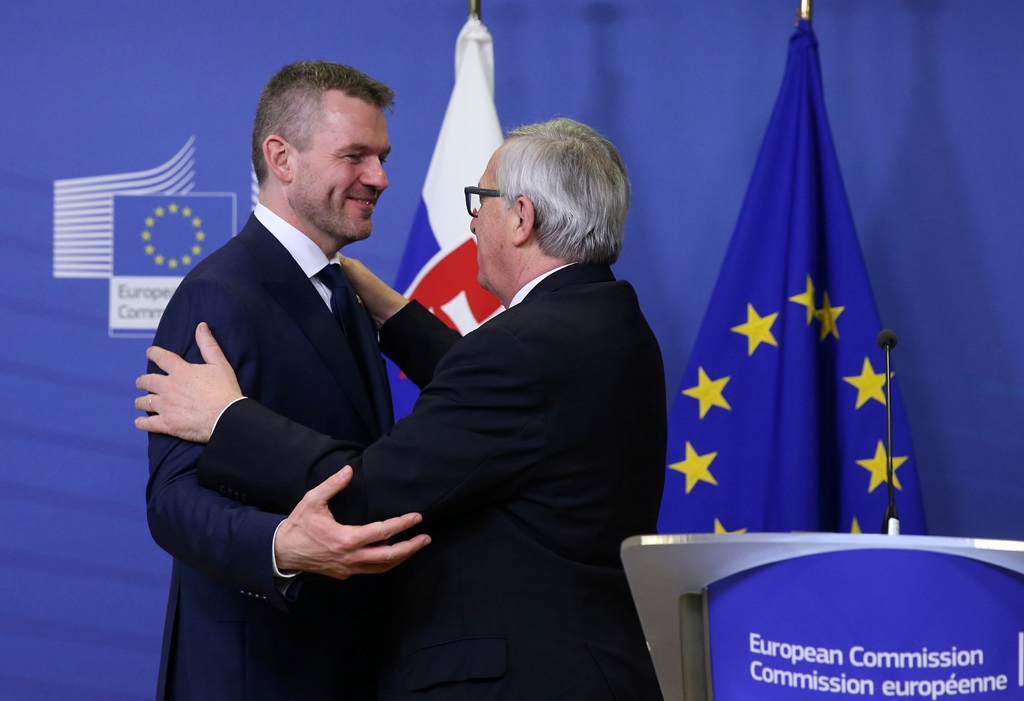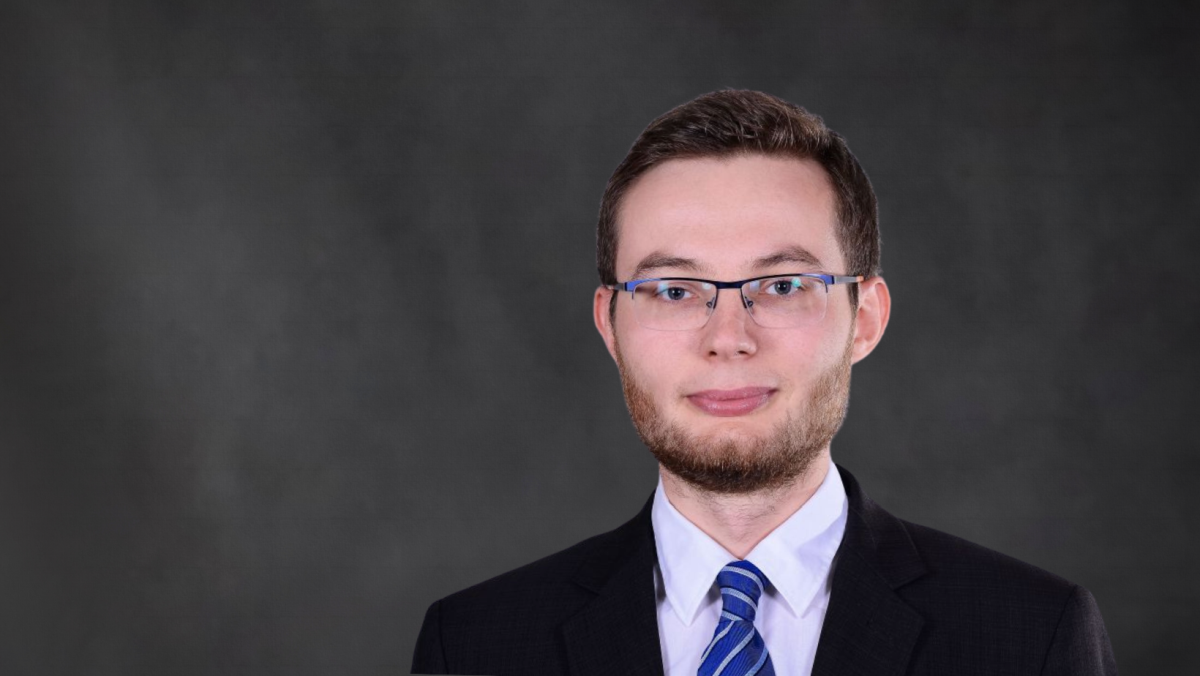Modifications to Slovakia’s European Policy

Tarnished Reputation
The murder of the journalist in February had serious political consequences. The social and political pressure within the government coalition led to the resignation of Prime Minister Robert Fico and the swearing-in of Pellegrini’s cabinet.[1] Kuciak’s death caught the attention of the EU institutions, manifested in part by an ad hoc delegation of the European Parliament (EP) to Slovakia. The EP report indicated, among other things, a imited effectiveness of the state in the application of law and the lack of independence among the police. In addition, the document has raised uncertainties related to the distribution of EU funds. On 19 April, the EP adopted a resolution calling on the Slovak authorities to carry out an effective investigation into the Kuciak murders. On the same day, the European Anti-Fraud Office (OLAF) announced it was starting an investigation into the alleged misuse of funds.
After the murders, issues related to the country’s international image took on special significance in Slovakia. From the perspective of the Slovak authorities, its image impacts their effectiveness in conducting European policy. The government in Bratislava does not want to aggravate these perceptions—such as the current negative image of the Visegrad Group in states such as Germany, France, and Italy caused by its members’ positions on mass-migration and disputes with EU institutions—with additional internal problems, such as not finding and arresting the perpetrators of the murders. Efforts to differentiate Slovakia from the other V4 countries could be observed, for example, after the parliamentary elections in the Czech Republic in October 2017, when Prime Minister Fico described his country as a “pro-European island in the region.” In turn, Minister of Foreign Affairs Miroslav Lajčák announced that an improvement in the V4’s image will be one of the priorities of the Slovak presidency of the group from July this year.
“EU core” à la Slovak
The “EU core” according to Slovakia includes the countries that belong to or would like to be a part of all projects regarding deep integration in the Union. Prime Minister Fico declared that the goal of Slovakia’s European policy is to bring it closer to the core, understood as France and Germany. His successor has stipulated, however, that this does not mean “blindly following these countries.” In practice, Slovakia presents different views from Germany, for example, on combining migration issues with payments from the EU budget, but accepts others supported by, among others, Germany and France, such as the European Commission’s proposal to link cohesion funds to the rule of law. In the latter case, the position of the Pellegrini government coincides with the Czech view but contrasts with the Polish and Hungarian positions. Although this attitude also differs from the previous declarations of Prime Minister Fico, it in fact means a continuation of the Slovak policy aimed at keeping close to the “EU core.”
It’s readiness to work toward a group of more integrated states, in such areas as an EU minimum wage and common income tax and EU social standards, was already expressed by Fico’s cabinet. In addition, Prime Minister Pellegrini declared in Brussels that Slovakia is willing to increase its contributions to the EU budget from 1% to 1.1–1.2% of GDP. In turn, to balance the concept of binding the rule of law to payments from the EU budget, the Slovak prime minister proposes combining them with compliance with EU obligations regarding deficit and public debt limits. This would put the V4 countries, which deal fairly well with financial discipline, in a favourable position and pose a challenge to the Southern EU countries.[2]
In the debate on the future of the EU, the message from the Slovakian government about more intense integration was strengthened by the country’s presidency of the EU Council in the second half of 2016, which followed directly after the Brexit referendum. On the one hand, Fico relinquished anti-Islamic slogans in the context of the 2015 mass-migration crisis, and on the other hand, more and more often began to reach for the rhetoric of joining the “EU core.” This corresponds also to the state’s ambitions in the candidacy of Minister of Finance and Deputy Prime Minister Peter Kažimír for the position of Eurogroup chairman and in efforts to win the competition for the relocation of the European Medicines Agency from London to Bratislava (in both cases without success). They were also reflected in raising the problem of double standards of food products in the EU.
In-depth Integration in Internal Discourse
The party Smer–sociálna demokracia (Direction-Social Democracy), which is still presided over by Fico, is positioned ahead of the other parliamentary parties, consistently calls for closer integration in the EU. While it is true that the view on the need to deepen integration is most clearly expressed by the liberal party Progressive Slovakia (PS), established in 2017, it remains outside the National Council. In turn, the parties of the parliamentary opposition, including the largest of them—Freedom and Solidarity (SaS)—rely on Eurosceptic rhetoric. At the same time, Smer hopes that focusing public attention on strengthening Slovakia in the EU will divert public attention from the government’s problems.
In Slovakia, there is consensus on European integration among the country’s top officials. In October 2017, President Andrej Kiska, National Council President Andrej Danko, and Prime Minister Fico issued a joint declaration expressing support for the EU budget, which in addition to implementing traditional EU policies, would enable responding to new challenges. The message of political agreement on EU issues is further strengthened during the National Convention on the EU, an annual series of conferences and extensive political and social consultations initiated by the Slovak Ministry of Foreign Affairs.
Conclusions
The murder of Ján Kuciak and his partner damaged Slovakia’s reputation, affecting the country’s image and leading to political costs. Maintaining the rhetoric of joining the “EU core” lies in the political interest of Prime Minister Pellegrini due to both Slovakia’s strategic interests in the EU, including the context of discussions on the future EU budget, and Smer’s positioning with regard to the other parties.
In the face of the budget proposed by the European Commission for 2021–2027, which aims to link receipt of funds to adherence to the rule of law, and the divisions in the V4 on this issue, Pellegrini’s suggestion to combine future payments from the EU budget to following fiscal rules is worth noting. Submitting this proposal for discussion could improve the negotiating position of the V4 countries and change the dynamics of the debate on the future budget in Poland’s favour. At the same time, it is in Poland’s interest to develop standards that would not raise doubts among EU institutions and its partners—including the V4—and would not negatively affect its negotiating position in the discussion on the Union budget.
Because of the debate on the future of the EU and the V4’s attempts to influence it effectively, it is necessary to work out more concrete proposals for reform of the bloc. Following the example of the Slovak National Convention on the EU, Poland could propose talks within the V4 about the future of the EU and include entities such as NGOs, research institutes, and academic circles. The developed arrangements and proposals could contribute to strengthening the unity of the V4 and increase the effectiveness of its members in the negotiations on the EU’s financial framework for 2021–2027 and in the discussion on EU reform.
[1] Ł. Ogrodnik, T. Żornaczuk, “Resignation of the Government in Slovakia,” PISM Spotlight, no. 20/2018, 16 March 2018.
[2] S. Płóciennik, "On the Same Path as Germany: Visegrad Countries’ View of Fiscal Discipline," PISM Bulletin, no. 53 (1626), 10 April 2018.




